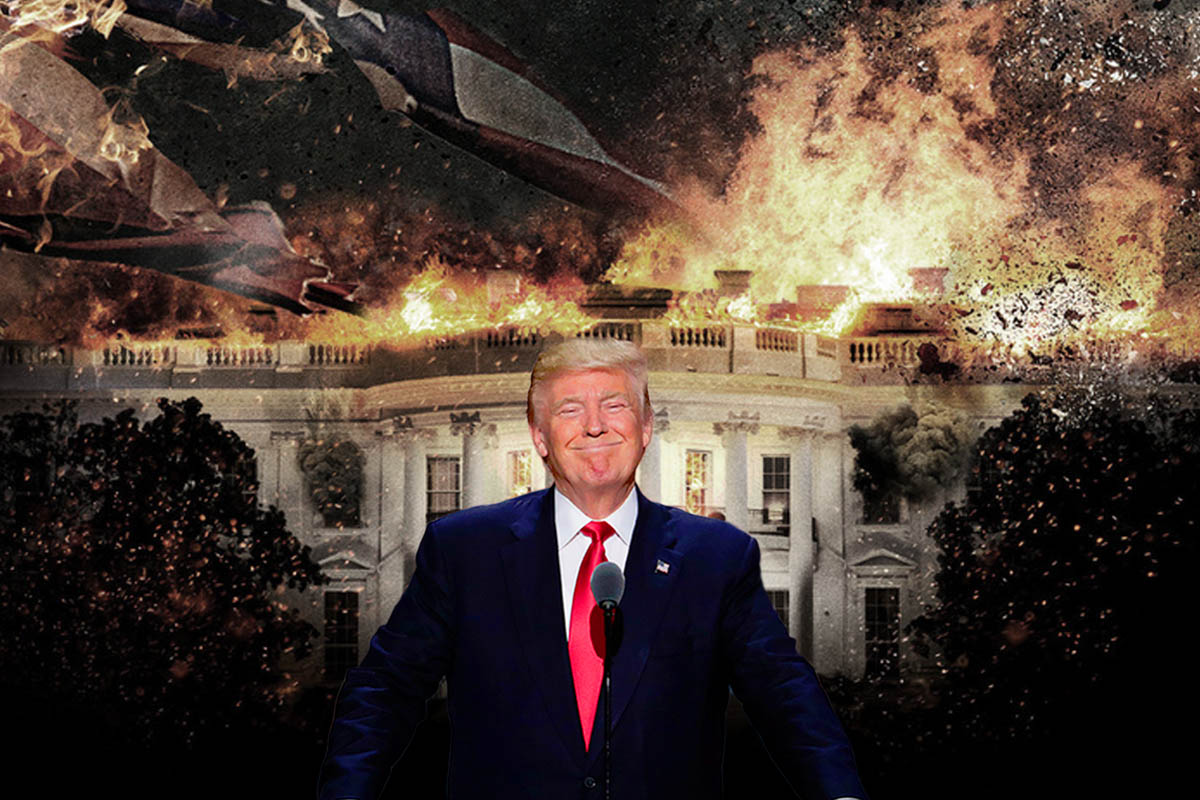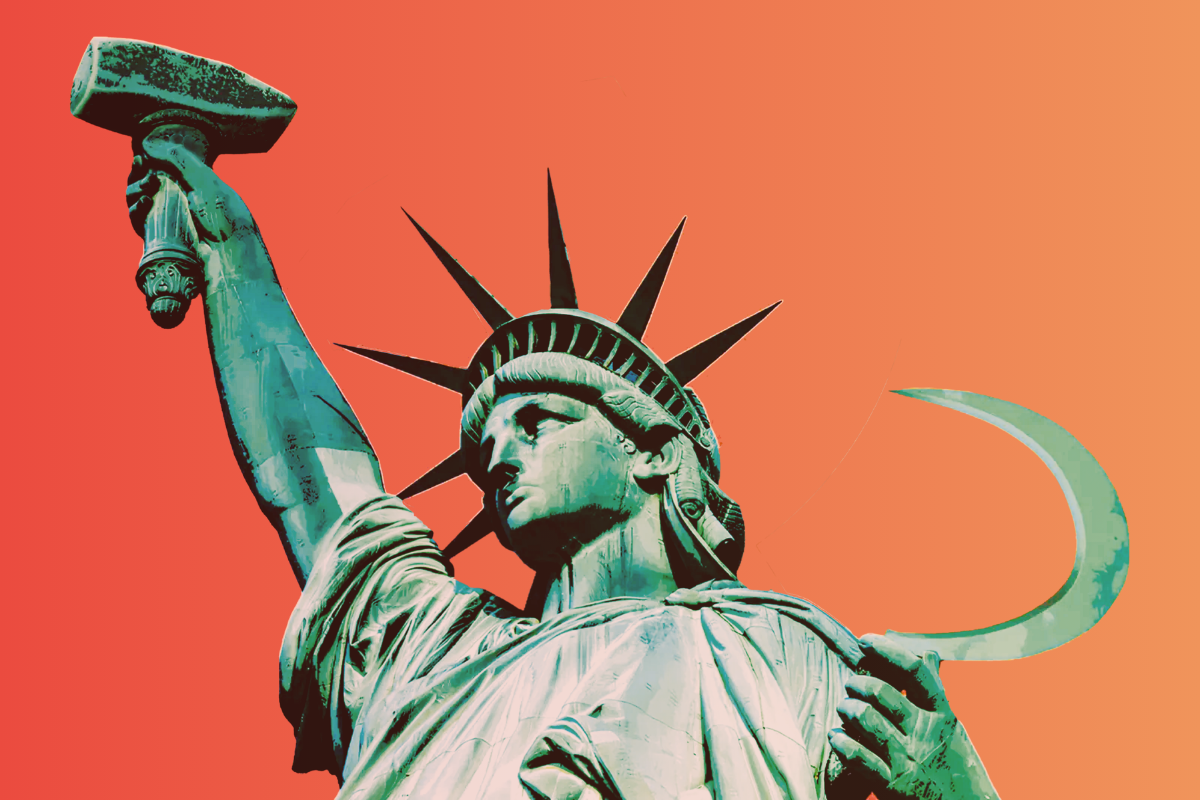Like Katrina and Sandy before it, Hurricane Harvey in the USA has once again revealed the rotten results of capitalism’s prioritisation of profits over people. What Harvey shows is that the system cannot effectively deal with catastrophe. In fact, capitalism itself is the catastrophe.
Like Katrina and Sandy before it, Hurricane Harvey has once again revealed the rotten results of capitalism’s prioritisation of profits over people. The disturbing images of wheel chair-bound nursing home residents up to their chests in floodwater say it all. “But the system was overwhelmed!”
The system is indeed overwhelmed. It cannot cope with the productive and creative capacity of humanity, constrained as it is by its artificial limits—the profit motive and the nation state. What Harvey shows is that the system cannot effectively deal with catastrophe; in fact, capitalism itself is the catastrophe.
At the same time, the real spirit of collective humanity was also revealed in these tragic and trying days: selfless sacrifice and sharing as people banded together for the greater good. It may be too late to stop the effects of climate change, but it’s not too late for us to retool society in order to deal with its effects. There is more than enough wealth to do so—but it is in private hands. The historic task of the working class is to wrest that wealth—created by working hands and brains—and use it to raise everyone’s quality of life to unimaginable new levels.
Harvey also shows how quickly things can change: how abruptly a massive metropolis can be turned upside down and the status quo of daily life and economic activity dramatically disrupted from one day to the next—because hurricanes are not the only catastrophe bearing down on humanity.
Hopes dashed
It’s been ten years since the first rumblings of the Great Recession, and we are statistically due for another downswing. No one should believe for a moment that the capitalists learned their lesson the last time and that it cannot happen again. Booms and slumps will accompany capitalism to its grave—and one hell of a slump is in the making.
What the capitalists did accomplish over the last decade was to use up all the tools at their disposal for weathering the inevitable return of the storm—by forcing workers to shoulder the burden. Next time around, it won’t be so easy trick people into bailing out the banks and insurers.
Long gone are the shock and awe inflicted by the crisis and the illusions in Obama’s promise of “hope and change,” both of which clouded people’s judgment and allowed the Great Swindle to happen. The streets will seethe with anger, and the clamor for socialism and revolution will intensify.
The world’s serious capitalists are the opposite of optimistic when it comes to the prospects for their system. The New York Times’ analysis of the annual Jackson Hole retreat reveals their entirely justified fears:
“The world’s major economies are all growing for the first time since the crisis, but the expansion is tepid and fragile . . . Financial regulators warned against deregulation. Proponents of free trade warned against protectionism. Jerome H. Powell, a Fed governor, warned against the almost unthinkable possibility that the United States might fail to pay its debts . . . There is a sense among central bankers that they are doing what they can, and that growth remains slow because of structural problems that require other kinds of policy interventions.”
In other words, they are doing everything they can but really have no idea how to make their own system work. Neither monetary nor fiscal tweaking can eliminate the system’s inherent contradictions—these can only be overcome through revolution.
Given the momentum and gravitational pull of its economy, the US could get away with mediocre and even incompetent leadership for a long time. During the postwar boom, its predominant position as the world’s economic engine could compensate for mistakes and a certain level of social spending could accompany the colossal outlays on imperialist ventures like the Vietnam War and a nuclear arms race.
Crisis in the White House
 In the final analysis, the leadership of the ruling class reflects the health of the economy upon which it bases its rule. Before 2008, it would have been virtually impossible for Trump to slip past the finish line against the wishes of the majority of his class. But the greatest crisis since the 1930s has unbalanced the whole of society—and any semblance of long-term equilibrium will never again be reestablished under capitalism.
In the final analysis, the leadership of the ruling class reflects the health of the economy upon which it bases its rule. Before 2008, it would have been virtually impossible for Trump to slip past the finish line against the wishes of the majority of his class. But the greatest crisis since the 1930s has unbalanced the whole of society—and any semblance of long-term equilibrium will never again be reestablished under capitalism.
If the intelligent bourgeois are incapable of preventing or dealing with the menacing crisis, then Trump is a thousand times more incompetent. When the cataclysm hits, we can be sure his basest authoritarian and bullying instincts will kick in as he thrashes about looking for scapegoats and doing what he can to save the system. Even his most loyal supporters will find it hard to deny which class he’s really looking out for.
That is if he hasn’t resigned by then, as the rumors swirling around Washington would have it. If that were to happen, or if he were impeached or otherwise removed, it would above all be a victory for the ruling class, which never wanted him in the White House in the first place and are moving steadily to either bring him to heel or force him out.
Although it would surely embolden those who oppose Trump’s agenda, it would not change anything fundamental. The entire system would still be in place and we would then have to fight against President Pence—a loyal guardian of the establishment—as well as against the Democrats, who would try to take credit and further dupe working people into voting for a party that doesn’t represent them in the slightest.
Limits of reformism
 One incredibly bright light on the horizon is the rapid growth of the Democratic Socialists of America (DSA) and the resounding success of its recent convention, where the revolutionary energy of the thousands of new members virtually transformed it into a new organization. At long last, radicalised American workers and youth have a pole of attraction, a national point of reference in the fight for socialism.
One incredibly bright light on the horizon is the rapid growth of the Democratic Socialists of America (DSA) and the resounding success of its recent convention, where the revolutionary energy of the thousands of new members virtually transformed it into a new organization. At long last, radicalised American workers and youth have a pole of attraction, a national point of reference in the fight for socialism.
DSA is also positioned to play a significant role in the coming fight for universal healthcare. Bernie Sanders is introducing a “Medicare for all” bill, but experience shows that proposing legislation is far from enough to make something a reality. Nationalizing the HMOs, Big Pharma, mega-hospital networks and related clinics, and integrating them into a single state-owned and democratically managed and administered health provider will take more than a few politicians to implement from above!
Mass mobilisations and strikes will be needed, and even a general strike may be on the order of the day. Ultimately, neither the Democrats or Republicans can deliver truly “great healthcare,” tied as they are to Wall Street and the 1%—and certainly not in the midst of an existential crisis of their system.
All meaningful reforms are the product of revolutionary pressure. However, while we must fight for positive reforms such as healthcare for all, in this epoch of crisis, revolution, and counterrevolution, we do not have to settle for a few modifications within the limits of capitalism. Not only will such reforms always be under threat of being rolled back by future waves of counterreforms, but the energy, organisation, and struggle required to win them could just as well be used to end the system altogether.
The working class is the majority, and we should democratically control both the government and the economy—and not only in the US. If we are serious about keeping “US Hands Off” of Latin America, the Middle East, Africa, Asia, and the world, then the working class must control those hands. Only then can we offer decisive support to our Venezuelan, Palestinian, Cuban, and Syrian sisters and brothers in their struggles for a better world!
Socialism or barbarism
To win all of this we need more than enthusiasm and willingness to confront the ultraright. We need ideas, theory, perspectives, and organization—and we need them on an international scale. We must forge habits of revolutionary discipline that may not seem necessary or urgent today, but which cannot be improvised when we really need them—and we may need them far sooner than anyone expects.
The International Marxist Tendency has fought tenaciously to hold high the banner of Marxism and socialist revolution against all the slanders and pressures that followed the collapse of the Soviet Union. Revolutionary forces are awakening around the world and the IMT is there, fighting shoulder to shoulder with our comrades in the Brazilian PSOL, Podemos, the Corbyn movement, France Insoumise, and in more than 40 other countries.
Charlottesville shows us what is at stake. Whether we like it or not, history has chosen the present generation to settle the greatest question of our time: what future for humanity? Socialism or barbarism? We are engaged in a life and death struggle between the forces of reaction and those who are determined that the human species will not be expunged from the universe anytime soon.
It is not an accident that the idea of “late capitalism” has captured the imagination of social media. The instincts of millions of young people tell them that something is wrong, that the system is decrepit and rotten and needs to be put out of its misery before it takes us all down with it.
Humanity needs socialism like the human body needs oxygen—there is only so long we can survive without it. We fight for reforms, yes, but reformism will not be sufficient to rid society of the cancer of capitalism.
A key objective for the working class in the next period must be the building of a mass revolutionary socialist party committed to ending capitalism, without which the workers will be incapable of defeating our well-organized and financed class enemies.
The revolutionary overthrow of private property, exploitation, and oppression is the challenge, and we shall meet it!





